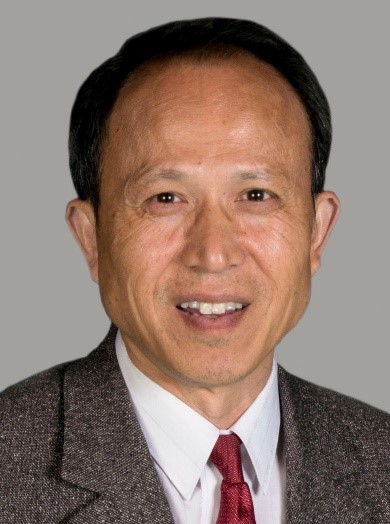
Prof. Jiangzhou Wang, Southeast University, UK
王江舟教授 东南大学,英国
Bio: Jiangzhou Wang, Foreign Member of the Chinese Academy of Engineering (CAE), Fellow of the Royal Academy of Engineering (RAEng), and IEEE Fellow, is a Professor at Southeast University. He has long been dedicated to theoretical research and engineering practice in mobile communications, having published over 500 papers and five monographs. In recent years, he has primarily focused on key issues and technical challenges in 6G mobile communications, exploring innovations and developments in next-generation mobile communication technologies.
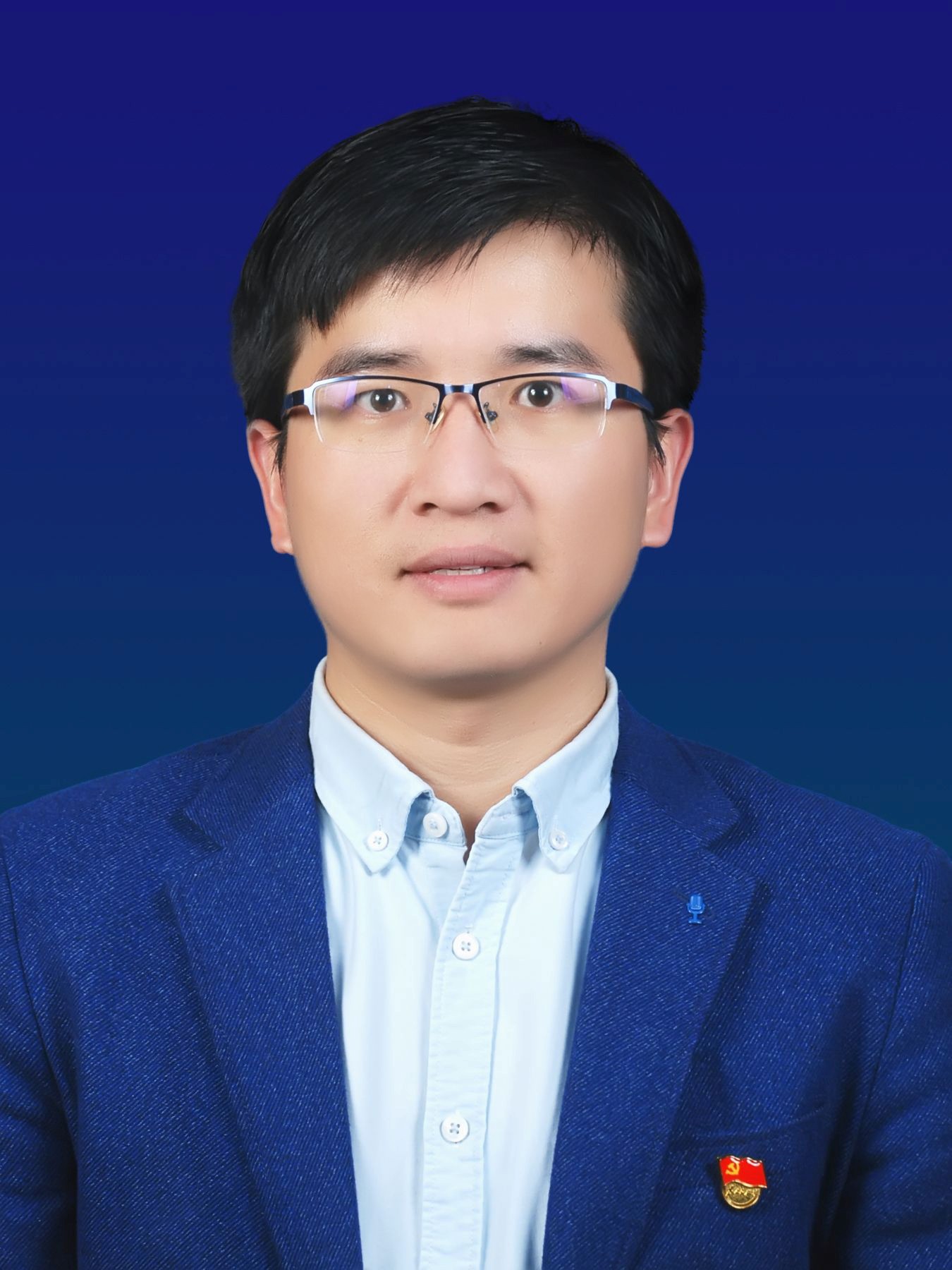
Prof. Tiancheng Li, Northwestern Polytechnical University, China
李天成,教授,西北工业大学
Bio: Tiancheng Li is currently a professor with Northwestern Polytechnical University since 2019, who had been a Marie Skłodowska-Curie Individual Researcher with the University of Salamanca, Spain, from 2014 to 2018. He has coauthored more than 50 refereed papers on eminent journals, such as IEEE SPM and TSP. His research interests include multi-sensor information fusion and Radar target detection and tracking. He is an Area Editor of the prestigious journal Information Fusion, and an Associate Editor for 10 peer-reviewing journals including FITEE, Journal of Radars, and Journal of Signal Processing. He is the General Chair of ICCAIS 2021 and named in the World’s top 2% of Scientists List since 2022. He is the recipient of the Best Paper Award in 2017 and Distinguished Editorial Board Member Award in 2020 from the journal FITEE, and was awarded the Second-class Natural Science Award by the CAA, the First-class Natural Science Award by Shaanxi Province and the Youth Science and Technology Award by CICC. He was granted the National Science Fund for Excellent Young Scholars in 2024.
Title: From Target Tracking to Targeting Track: Trajectory Stochastic Processing Modeling and Estimation
Abstract: To solve the target tracking problem with little a-priori information about the target dynamics, our series of studies propose to model the target trajectory by the powerful tool of stochastic process (SP). Building on a deterministic-stochastic decomposition framework, we decompose the learning of the trajectory SP into two sequential stages: the first fits the deterministic trend of the trajectory using a curve function of time, while the second estimates the residual stochastic component through learning either a Gaussian process (GP) or Student’s-t process (StP). Notably, our approach models the temporal correlations of the state sequence and of measurement noise using separate GP or StP. It does not only take advantage of the smooth trend of the target but also makes use of the long term temporal correlation of both the data and the model fitting error.
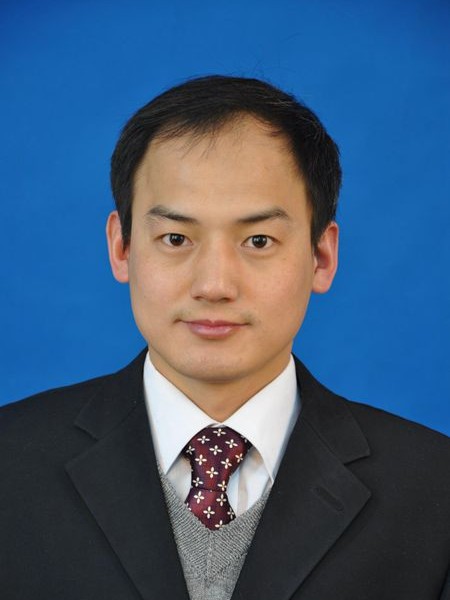
Prof. Mouquan Shen, Nanjing Tech University,China
沈谋全,教授,南京工业大学
Bio: Mouquan Shen is the Director of the Professor Committee and a Doctoral Supervisor at the School of Electrical Engineering and Control Science, Nanjing Tech University. He completed his postdoctoral research at Southeast University and has been a visiting scholar at several overseas institutions, including The University of Hong Kong, Yeungnam University (South Korea), and the University of Adelaide (Australia). He has been recognized as a high-level talent in the Jiangsu Provincial "Six Talent Peaks" Program and was listed among the Top 2% of Scientists Worldwide in 2024 and 2025. He has led over 10 provincial and ministerial-level projects, including those funded by the National Natural Science Foundation of China. In recent years, he has published more than 100 papers in prestigious journals such as *IEEE Transactions on Automatic Control*, *IEEE Transactions on Cybernetics*, and *IEEE Transactions on Systems, Man, and Cybernetics: Systems*, achieving an H-index of 31. He has served as the chair of three international conferences and has been invited to deliver keynote speeches at multiple international conferences. Currently, he is an Associate Editor for *IEEE Transactions on Circuits and Systems II: Express Briefs* and has served as a reviewer for over 90 domestic and international journals, including *IEEE TAC* and *Automatica*. Additionally, he acts as a communication reviewer for the National Natural Science Foundation of China, the National Key R&D Program of China, and various provincial and municipal science and technology projects.
Title: Model-free optimization control
Abstract: This talk focuses on the research on key techniques of model-free optimization control . Three control strategies are designed by using finite-time control method, disturbance estimation method combined with extended state observer and adaptive dynamic programming method. Three event-triggered mechanisms are constructed via introducing finite-time parameter, true and estimated tracking errors, and instantaneous and average data. Sufficient conditions are proposed to ensure the ultimately uniform boundedness of the resultant closed-loop error systems. Several examples are provided to validate the effectiveness of the proposed schemes.
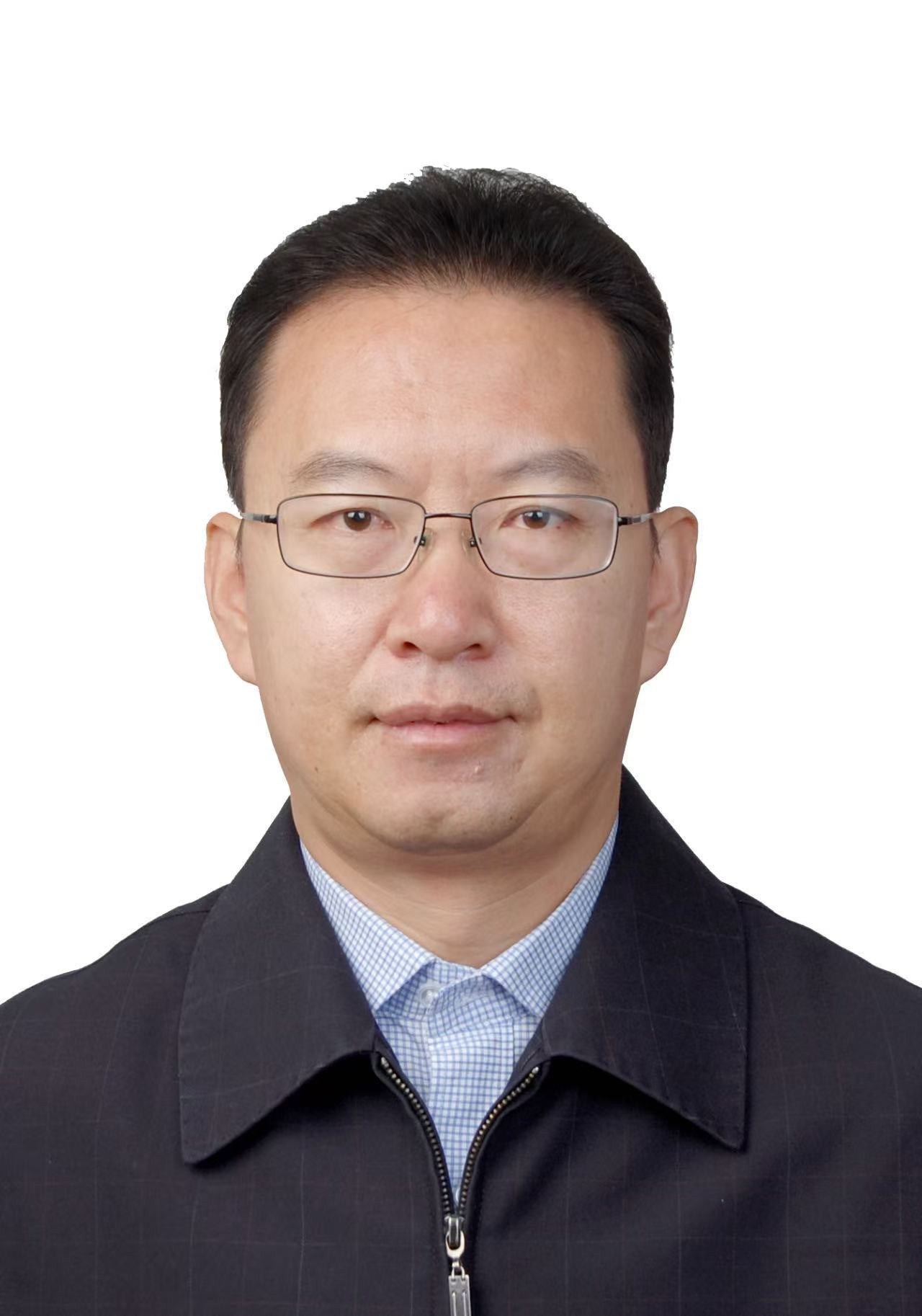
Prof. Haiying Dong, Lanzhou Bowen College of Science and Technology, China
董海鹰,教授,兰州博文科技学院
Bio: Second-Level Professor and Doctoral Supervisor,He currently serves as a Counselor of the Gansu Provincial Government, a member of the Gansu Provincial Government Decision-Making Advisory Committee, and one of the first batch of experts at the Gansu Provincial Civil-Military Integration Development Think Tank. He is also the Director of the Gansu International Science and Technology Cooperation Base for Energy Internet Technology and Equipment R&D, and the Director of the Gansu Technological Innovation Center for Energy Storage Systems and Operation Control. He has been appointed as a review expert for the National Science and Technology Awards, the National Natural Science Foundation of China, the Postdoctoral Science Foundation, and the Ministry of Science and Technology's scientific project evaluations. His academic roles include Vice Chair of the Intelligent Distributed Energy Committee of the Chinese Association of Automation, member of the Energy and Power Engineering Teaching Committee of the China Electric Power Education Association, member of the Fault Diagnosis and Safety Technical Process Committee of the Chinese Association of Automation, and member of the New Energy Power Generation Equipment Committee of the Chinese Society for Electrical Engineering. Additionally, he serves as Vice Chair of the IEEE PES Lanzhou Branch, Vice President of the Gansu Provincial Society of Electrical Engineering, and Vice President of the Gansu Provincial Electrotechnical Society. He is also the Chair of the Academic Committee of the Gansu Provincial Key Laboratory of Solar Power System Engineering. He is an editorial board member of several journals, including Electrical Drive Automation and Integrated Smart Energy. He has led over 40 scientific research projects, including those funded by the National Natural Science Foundation of China, sub-projects of the National Key R&D Program, and Gansu Provincial Major Scientific and Technological Special Projects. He has published more than 200 academic papers, authorized over 20 invention patents, authored five books and textbooks, and received more than 10 scientific and technological progress awards, along with four teaching achievement awards. He was honored with the Gansu Provincial Higher Education Institution Young Faculty Achievement Award and has been selected as a leading talent in Gansu Province. His main research interests include modeling and intelligent control theory of complex systems, new energy generation and grid integration, and operation control of new energy power systems.
Title: Intelligent Control of Hydrogen Fuel Cell
Abstract: Proton Exchange Membrane Hydrogen Fuel Cell are widely used in energy, power, industry, and transportation due to their zero emissions, high energy efficiency, and fast start-up characteristics. However, the fuel cell is a complex system involving multi-physics coupling, which poses significant challenges in establishing its accurate model and achieving high-performance control. This report presents fuel cell modeling and parameter identification methods, along with control strategies including fuzzy Active Disturbance Rejection Control based on feedforward compensation decoupling for the air supply system, fuzzy temperature control, and CMAC neural network-based power control. Additionally, it introduces the developed hardware system for the fuel cell controller and the experimental test results.
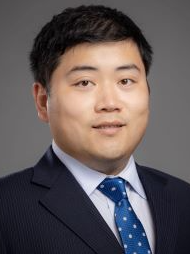
Prof. Weinan Gao, Northeastern University, China
高伟男,教授,东北大学
Bio: Weinan Gao is a Professor, at Northeastern University, IEEE Senior Member, and a Visiting Professor at Mitsubishi Electric Research Laboratories in Boston, USA, and one of the top 2% scientists in the world according to Stanford University. He received his Ph.D. from New York University, USA. He has long been engaged in basic theoretical research on artificial intelligence, adaptive dynamic programming, optimal control and output regulation, and has carried out basic application research on intelligent connected vehicles, autonomous driving, power systems and other specific objects. He has published more than 60 papers in international journals such as IEEE Trans. Automatic Control and Automatica, including 4 ESI highly cited papers. He serves as an editor of international journals in the field of control and artificial intelligence, such as IEEE Journal of Automatica Sinica, IEEE Trans. Neural Networks and Learning Systems, and Control Engineering Practice. He has won several best paper awards at international conferences.
Title: Learning-based Adaptive Optimal Control and its Applications
Abstract: Output regulation constitutes a fundamental mathematical framework concerned with designing controllers for dynamic systems to achieve disturbance rejection and asymptotic tracking. Reinforcement learning, on the other hand, provides a paradigm for how an agent can learn optimal strategies through interaction with an unknown or uncertain environment, with the objective of minimizing a cumulative cost over time. Adaptive Dynamic Programming (ADP) emerges as a pivotal branch of reinforcement learning, offering a data-driven, model-free methodology for adaptive optimal control in complex dynamic systems. In this presentation, I will explore the application of ADP as a powerful tool to solve learning-based output regulation problems across both linear and nonlinear systems.

Prof. Pierluigi Siano,University of Salerno, Italy
Pierluigi Siano,教授,萨莱诺大学
Bio: Pierluigi Siano received the M.Sc. degree in electronic engineering and the Ph.D. degree in information and electrical engineering from the University of Salerno, Salerno, Italy, in 2001 and 2006, respectively. He is a Full Professor of Electrical Power Systems and Scientific Director of the Smart Grids and Smart Cities Laboratory with the Department of Management & Innovation Systems, University of Salerno. His research activities are centered on demand response, energy management, the integration of distributed energy resources into smart grids, and electricity markets, and the planning and management of power systems. In these fields, he has co-authored 8 international books, more than 800 articles including over 500 articles in international journals, which have received more than 25900 citations on Scopus, achieving an H-index of 78. Since 2019, he has been awarded as a Highly Cited Researcher by the Web of Science Group. He has been the Chair of the IES TC on Smart Grids. He is an Editor for the Power & Energy Society Section of IEEE Access, IEEE TRANSACTIONS ON POWER SYSTEMS, IEEE TRANSACTIONS ON INDUSTRIAL INFORMATICS, IEEE TRANSACTIONS ON INDUSTRIAL ELECTRONICS, IEEE SYSTEMS.
Title: Multi-Objective Optimization for Assessing Tradeoffs Between Energy Sharing and Ancillary Services in Local Energy Communities
Abstract: Recent Italian regulation rewards Local Energy Communities (LECs) through two distinct channels: an incentive for virtual shared energy and market access for distributed batteries that provide up‑regulation. These incentives often conflict, as charging batteries to maximize the shared energy limits the capacity needed to provide ancillary services, and vice versa.
Today, there is a lack of quantitative tools to effectively balance these objectives while respecting the electrical constraints of the low-voltage grid. To fill this gap, a multi-objective optimization is proposed that co‑maximizes the revenue from up‑regulation and the virtual shared energy reward, under the constraint that the daily energy bill does not exceed a predefined baseline.
The implemented mathematical programming formulation utilizes multi-objective second-order cone programming (SOCP) with linear constraints to incorporate the network's physical constraints. Linearization and decomposition techniques are used to decompose the problem.
By considering the physical constraints of the network, the impact of energy communities on the distribution network can also be evaluated when considering different conflicting objectives. The model allows the representation of real peer‑to‑peer trading, quantifying its effects on both revenue streams and on voltage profiles and power losses.
Trade‑off analyses performed on an 84-bus radial distribution network, under both constant and variable prices, show that the framework adapts smoothly to market volatility, highlighting when it is advantageous to prioritize up‑regulation and when it becomes preferable to maximize the virtual shared energy incentive.
